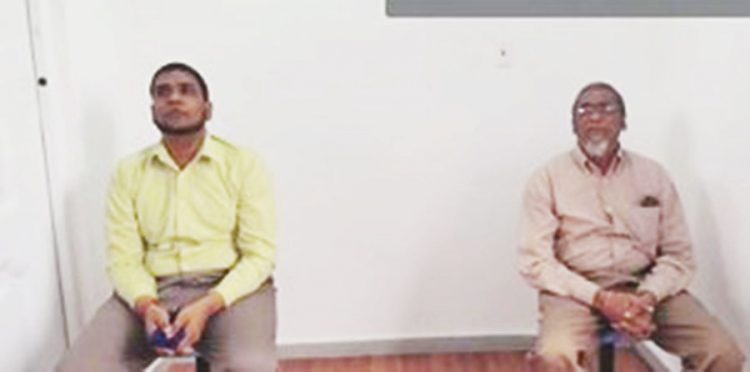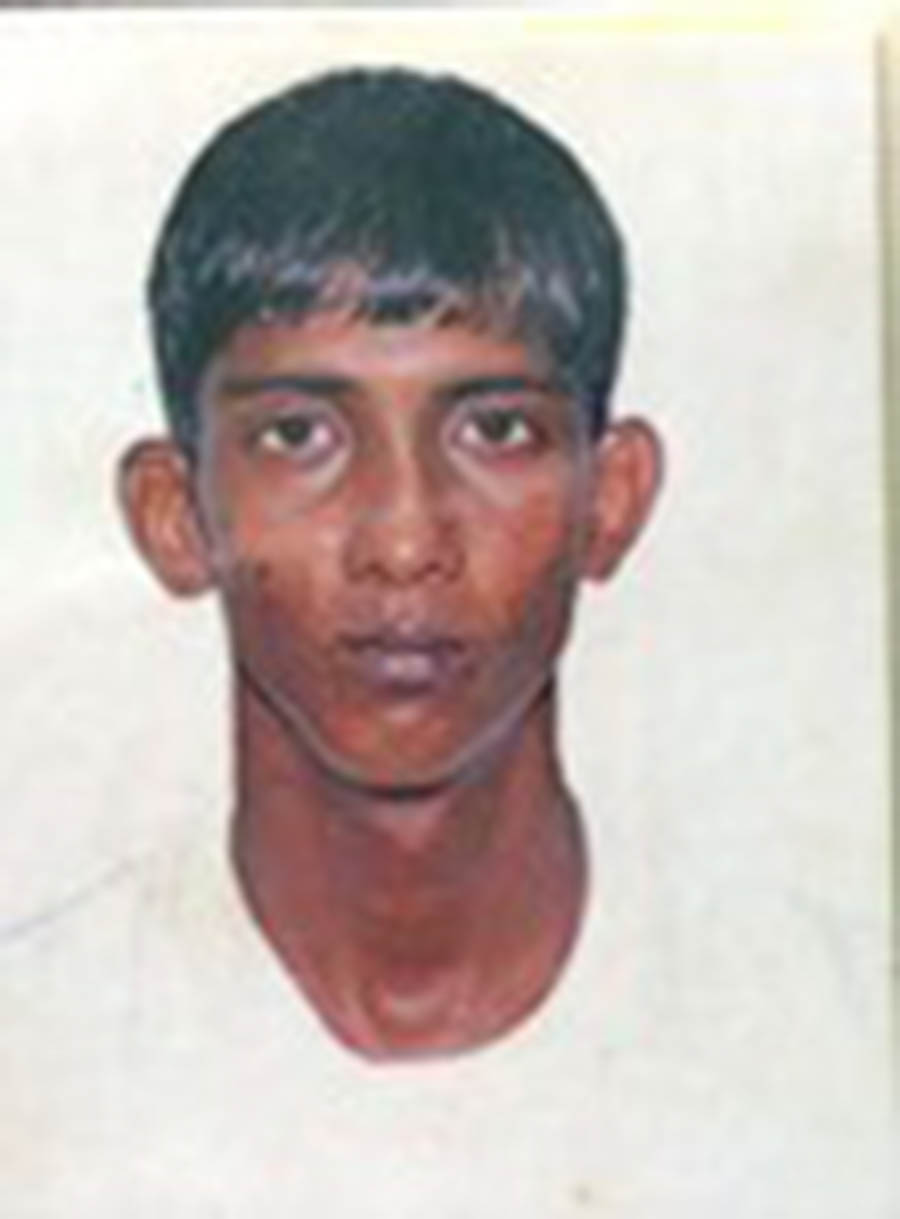A father and son who had pleaded guilty to the 2018 killing of 23-year-old labourer Brian Dwarka, appeared before Justice Sandil Kissoon on Thursday for sentencing; but only the son was sentenced as the judge said that a review of the evidence showed that there had been no culpability on the father’s part.
Justice Kissoon was keen in pointing out that this fact was evident when the father was arrested and charged five years ago and lamented that that state of affairs “has caused this Court great unease.”
Suraj Singh and his son, Andrew Singh, were accused of murdering Dwarka on May 27th, 2018.

At their arraignment last month before the High Court in Demerara, however, they denied the capital offence when it was read to them, but pleaded guilty instead to the lesser offence of manslaughter.
In throwing out the charge against the elder Singh, Justice Kissoon made reference to exculpatory statements which he said that the accused had given to the police at the time of his arrest, and even the son’s account of his father’s innocence.
And given the circumstances of the case in which Andrew had gotten into the altercation which ultimately led to Dwarka’s death—only because he (Andrew) was acting in self-defence—the judge sentenced the young man to only 4 years.
The facts of the case are that Dwarka, in the company of others, had attacked the elder Singh and robbed him of his gold chain, during which his son went to his aid.
Justice Kissoon said that the circumstances give rise to provocation, and it was for that reason that the Court accepted the guilty pleas to the lesser charge of manslaughter.
The judge said that what was found to have been extremely troubling on review of the deposition, however, was the attempt by prosecution witnesses “to conceal” the events that occurred.
Against this background he said that there were multiple statements given by identical witnesses, and where subsequent statements omitted material particulars as to the truth of what occurred.
The judge said that the factual circumstances before the court showed that Suraj had made a report to the police of the incident of robbery with violence meted out to him by Dwarka and others.
He said that Suraj gave written statements detailing those facts but was later arrested while receiving medical attention at a hospital.
Justice Kissoon said that those facts have “caused this court great unease,” because, without more, it raised questions of persons—a father and son—acting in defence of themselves and property.
The judge said that these were all issues which arose on the facts which were accepted and agreed by the prosecution; while lamenting that even though those facts were brought to the attention of the police five years ago, they were treated with indifference in the police report.
Before ordering that the elder Singh be released forthwith on time-served, Justice Kissoon noted that the prosecution itself had no evidence to dispute that Suraj never inflicted any injury on Dwarka, nor was he ever alleged to have done so.
The judge said that at all times, from the date of his arrest to his arraignment, Suraj had provided a written exculpatory statement to the police and has at all times maintained that he was attacked by Dwarka who was armed with a cutlass and robbed of his gold chain.
Justice Kissoon said that on the facts of the case, the Court was of the view that Suraj had been incarcerated for the past five years without justification and without any legal basis.
In all of the circumstances and in view of the plea he had entered, Justice Kissoon said that Suraj is to be released forthwith to time served.
Meanwhile, regarding the son Andrew, the judge said that while the Court needed to consider that a life was lost, that could not be examined in isolation of Dwarka’s contributory role in his own death.
Against this background the judge made the point that Dwarka was responsible for the provocation to which Andrew succumbed, in the course of which Dwarka was stabbed.
The judge, however, did say that citizens cannot be allowed to exact justice, but that that was a role for the courts
Justice Kissoon said that having considered all the circumstances before him, an 18-year base point for sentencing was appropriate. He then made a one-third deduction for Andrew’s guilty plea.
From the remaining 12 years, three years were deducted on account of Andrew having been provoked; and from the remaining nine years thereafter, a further five years were deducted as remission for time he had spent on remand awaiting trial.
In the final analysis, Andrew was sentenced to four years behind bars.
The father and son were represented by defence attorney Latchmie Rahamat.






